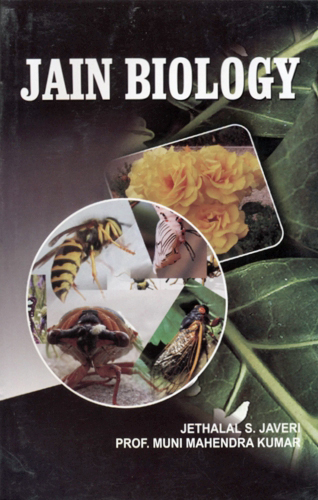Rebirth and Karman[1] are the two most important presuppositions of Jain philosophy. Doctrine of rebirth is necessary to emphasize the eternal nature of the soul and the doctrine of karman is needed to explain the infinite variety of the living organisms. From this aspect, the manifestation of consciousness may be expressed in awareness of action (karma-cetanā) and awareness of pleasure and pain (karmaphala-cetanā). The doctrine of karman is intimately associated with the causal agency of the soul. Even in the lowest organism, there is the desire to continue pleasurable activity and to discontinue the painful one. This primitive tendency of the soul is just the conative attribute of the soul which develops into conscious choice of an end or purpose which is the characteristic of volitional activity.
The term 'body' implies not one but two different things. The gross or physical body is the one which we actually perceive and which is constituted and nourished by various nutrients taken in the form of food, etc. This body will be given up by the soul after a certain period which is called life-span. Besides this gross body, there is for every soul a microbody called kārmaṇa śarīra which is constituted by the subtlemost molecules of a special group of matter called karma-pudgala or karmic matter. This microbody is a necessary and inalienable appendage of all living organisms and transcended only at the time of emancipation. But, in the worldly state of existence, every action of a living organism cause a transcendental effect; it generates a certain potential psycho-physical force which manifests itself by determining significant details of the life of the living organism such as—health & happiness or illness & misery. Just as a commercial bond does not lose its validity until and unless the amount is repaid, so also the effect of karmic force generated by an action continues to be potentially valid long after the disappearance of the cause itself. The effect, thus, does not confine itself to one life but may continue for many lives beyond the present one. In other words, the entire gamut of the conditions and duration of the present life is the result of the karman of the preceding ones and the actions during the present life are the causes of the conditions and duration of the future existence. And hence, birth of an individual living organism in a particular species at a particular time and in a particular place is neither arbitrary nor accidental but the very precise result of the individual's karman which again is the result of its actions in the past life or lives. The determination of the species, the life-span, the social status, feeling of pleasure or pain and such other fundamental factors of the individual's life are the combined result of four aghatin categories of karman.
 Jethalal S. Zaveri
Jethalal S. Zaveri
 Prof. Muni Mahendra Kumar
Prof. Muni Mahendra Kumar

